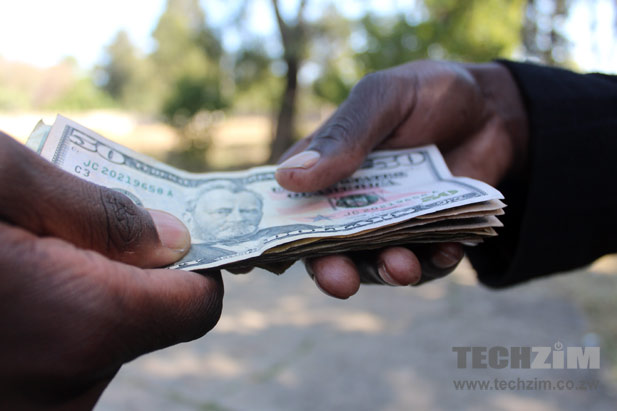Economies run on trade. Of course, if we looked hard enough we could find one self-sufficient man somewhere but most of us have to trade what we have for what we need. Money, especially paper and electronic money makes this all easier.
The beauty of it is that we have a record of how much money there is in the economy and how much people are trading with each other.
The money supply is the total amount of money in the economy and it’s growth is, or more correctly, should be tied to growth in the economy.
It’s common sense really. If we are producing the same amount of goods then the same amount of money should be enough. A growth in money supply not supported by a growth in economic activity is how high inflation is begotten.
Zimbabwe’s money supply (M3) was ZW$36.3 billion in January 2020 and it had ballooned to ZW$1.1 trillion by June 2022. That’s a 3000% increase. Can we say there was a corresponding 3000% increase in economic activity to warrant this? I don’t think so.
The question is, did the increase in prices necessitate a growth in money supply or did a growth in money supply lead to price increases? What we know is that a lot of dollars chasing few goods leads to demand pull inflation.
Velocity
Talking about demand-pull inflation, turns out the Zimdollar has a very high velocity. This means the number of times money moves between different people in an economy. High velocities are usually associated with booming economies, usually in the developed world.
In Zimbabwe, this high velocity of 7:1 comes from people looking to discard the Zimdollar as fast as possible. Most of us can’t help but receive some ZW$ at some point and we rush to convert to USD or to buy groceries before inflation does its thing.
So, this velocity is contributing to the inflation problem by inducing demand. Demand for USD which led us to the current exchange rates and demand for goods that led us to current prices.
We are transacting less
Most of the ZW$1.1 trillion in circulation exists as zeroes and ones on the RBZ’s computers. A tiny fraction of it is in cash form.
The weird thing is that as the money supply increased the number of times we transact went down. You would expect that with increased velocity and a 3000% increase in the money supply the number of transactions would increase but you’d be wrong.
RTGS transaction volumes have not been increasing. Where we did around 242,838 in a week in January 2020, we were doing around 228,497 in July 2022. A 6% drop.
Now these RTGS transactions are responsible for 87% of transaction values. This is where the big money moves are made but it’s mostly corporates making RTGS payments.
It’s not just RTGS volumes that are down, POS volumes are down 45% and mobile money is down 41% in the same period. ATM volumes are the only ones up in that time period but ATM transactions are just people withdrawing from banks so they can purchase USD and are only responsible for 1.22% of transaction values.
We, the regular citizens don’t use RTGS that often, if not cash, we use swipe at point of sale terminals or mobile money. It is then curious to see those two channels’ usage fall by 45% and 41% respectively.
This points to cash usage
Like we talked about above, economies run on trade. We see the number of transactions going down and yet we know people still trade, they still send each other money.
We can chalk down the drop in volumes to people having less to spend and so transacting less. That’s definitely a factor.
The low transaction limits placed on mobile money transactions also saw people not use mobile money as much. We can’t ignore that too. If not mobile money what are people using now?
I think what’s happened is that people have moved on to cash transactions. We know that remittances in are at an all-time high. They reached US$1.4 billion last year and that’s not counting the funds that don’t come in via legit channels.
The foreign currency is there in the market. It’s just that it is hard to track just how much is in circulation. The government makes its job harder by introducing further disadvantages to using official channels when using USD. The 4% tax on USD transfers being a huge deterrent.
As a result, all trade in USD happens in the shadows, off the books, never to be fully appreciated.
I recently tried converting US$1 to ZWD in town and was surprised to find most turned me away. They did not have any ZW$, there is a shortage of the stuff in the market. However, people are getting by using their USD just fine.
I know that’s just an anecdote but I think it shows what’s on the ground.
Re-dollarisation
We can ignore this all we want but Zimbabwe really is re-dollarising by the day. The longer we ignore this the longer we have to wait for policies that will work. I’m not here to argue whether or not dollarisation is a good thing. I’m saying it’s already happening and as a country we have to respond accordingly.
Those in business, especially the informal kind, will tell you that they are struggling to collect payments. Dealing in cash necessitates a physical meet up and that’s not convenient for anyone.
You may have noticed how e-commerce players all now have a cash on delivery option. It has it’s challenges but it’s going to have to work.
Instead of pretending the markets have not dollarised we should be tweaking our policies to enable business to thrive.
That’s just me though. If you have thoughts on this do let us know in the comments below.
Also read:
Govt doubling down on what many believe caused the Zimdollar to collapse last year

What’s your take?